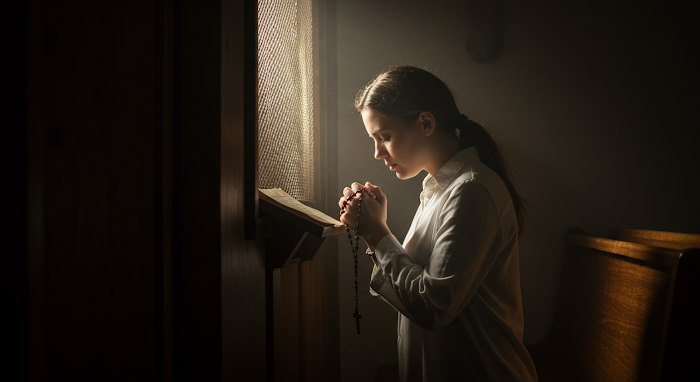
The Act of Contrition: Your Essential Catholic Prayer for Forgiveness & Reconciliation
Introduction: Embracing Divine Mercy Through Contrition
In the heart of Catholic spirituality lies a profound understanding of God's boundless mercy and our human capacity for sin. Central to bridging this gap between our fallen nature and divine grace is the practice of contrition – a sincere sorrow for having offended God. Among the most cherished expressions of this sorrow is the Act of Contrition, a powerful Catholic prayer that opens the door to forgiveness and spiritual renewal.
What is the Act of Contrition?
"O my God, I am heartily sorry for having offended Thee, and I detest all my sins because of Thy just punishments, but most of all because they offend Thee, my God, Who art all good and deserving of all my love. I firmly resolve, with the help of Thy grace, to confess my sins, to do penance, and to amend my life. Amen."
Why is the Act of Contrition So Important in Catholicism?
Preparation for Reconciliation: It is an integral part of the Sacrament of Reconciliation (Confession). After confessing one's sins to a priest, reciting the Act of Contrition expresses the necessary interior disposition of sorrow before receiving absolution. Expression of Sorrow: It articulates our remorse for having offended God, not just for fear of punishment, but primarily because sin offends a loving God who is "all good and deserving of all my love." Foundation for Forgiveness: While God's mercy is unconditional, our active participation through contrition is essential for receiving and appreciating His forgiveness. It signifies our turning away from sin and back towards God. Purpose of Amendment: The prayer includes a "firm purpose of amendment," meaning a genuine intention to avoid sin in the future and to make amends for past wrongs. This is a crucial element for true conversion. Spiritual Growth: Regularly praying the Act of Contrition, even outside of Confession, fosters a habit of self-examination, humility, and reliance on God's grace, leading to deeper spiritual growth.
Perfect Contrition vs. Imperfect Contrition
Perfect Contrition (Contrition of Charity): This is sorrow for sin that arises from a pure love for God, who is infinitely good and deserving of all our love, and whom we have offended by our sins. It is motivated purely by charity (love). If a person has perfect contrition and a firm intention to go to Confession as soon as possible, serious sins are forgiven even before receiving the Sacrament of Reconciliation. Imperfect Contrition (Attrition): This is sorrow for sin that arises from less pure motives, such as fear of punishment (hell or purgatory), or disgust at the ugliness of sin itself. While not motivated by perfect love for God, imperfect contrition is still a gift from God and is sufficient to obtain forgiveness in the Sacrament of Reconciliation.
When and How to Pray the Act of Contrition Effectively
Part of Evening Prayers: A moment to reflect on the day's shortcomings and seek God's forgiveness. Before Receiving Holy Communion: If one believes they have committed a venial sin, this prayer can help prepare the heart. For mortal sins, the Sacrament of Reconciliation is required before receiving Communion. Whenever One Becomes Aware of Sin: It's a spontaneous response of the heart to acknowledge offense against God and seek His mercy.
Beyond the Words: Living a Life of Contrition
An Examen of Conscience: Regularly reflecting on one's thoughts, words, and deeds in light of God's commandments. A Commitment to Amendment: Actively working to overcome sinful habits and tendencies. A Deeper Love for God: Recognizing His immense mercy and striving to love Him more perfectly. Seeking Reconciliation: Making amends with those we have wronged and striving for peace.

%20Meaning%20&%20Histor.png)




